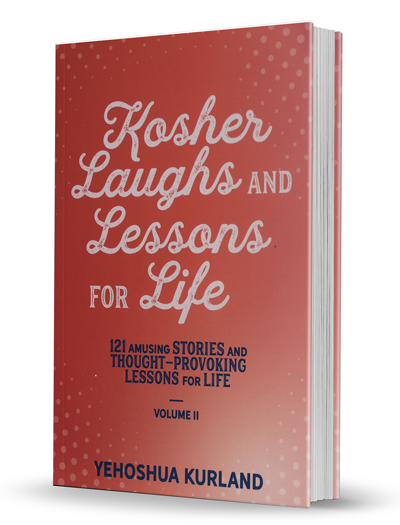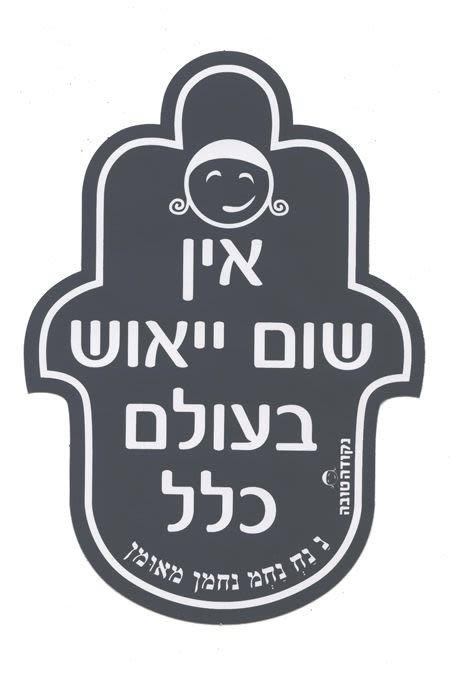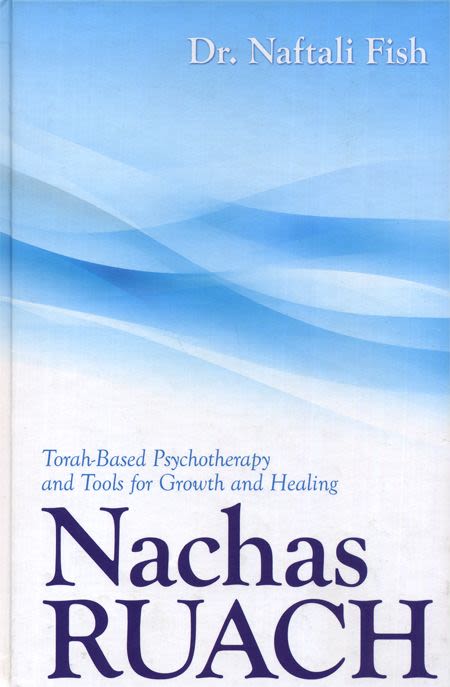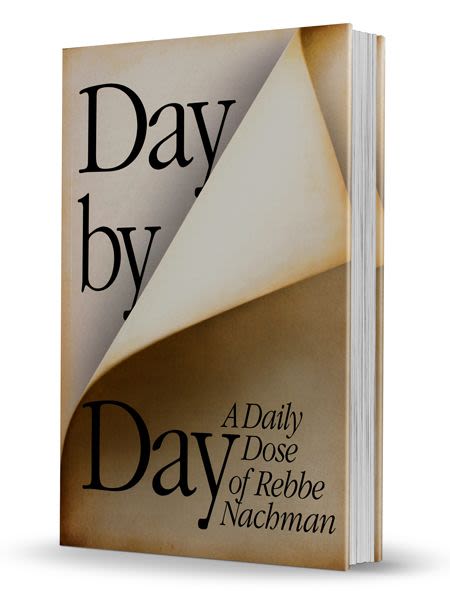
Tzedaka (Charity) – The Work of Giving
Our sages teach: If you see that your livelihood is limited, give tzedaka! All the more so, if you have sufficient income. This is like a shorn and unshorn...

Tzedaka (Charity) – The Work of Giving
Our sages teach: If you see that your livelihood is limited, give tzedaka! All the more so, if you have sufficient income. This is like a shorn and unshorn sheep trying to swim across the river. The shorn one has no problem crossing the river, but the other sheep drowns when its wool becomes heavy with water (Gittin7a).
The power of tzedaka is extensively discussed in Jewish sources. Numerous Breslov teachings on the value of this great mitzvah appear throughout Rebbe Nachman’s and Reb Noson’s writings.
Rebbe Nachman teaches: All beginnings are difficult… Just as a woman giving birth must undergo the travails of labor before she can bring her child into this world, so too, anything we wish to accomplish – give birth to and create – we must first experience the “pains of labor.” The hardest part is making the opening, the beginning. Tzedaka is called an opening. It is the first opening, the one that widens all cracks and opens all the other doors; it creates opportunities (Likutey Moharan II 4,2).
It is difficult to begin giving tzedaka. This is especially true if we are, by nature, miserly or if there are hidden streaks of cruelty in our personality.
The real work is to break our inherent cruelty and convert it into compassion. This is expressed through, “And I commanded the ravens to sustain him.” Although the raven’s nature is cruel, it was transformed into compassion to sustain Elijah the Prophet. Likewise, anyone who gives tzedaka because of their inborn generosity, regardless of the amount, needs to pass through this preliminary stage of breaking whatever cruelty they possess and turning it into compassion.
Reb Noson writes in Likutey Halachot, that when we see another who is starving, our compassion is certainly aroused to help him. Of course this is a mitzvah, and we must do it, but there is also a much higher level of giving tzedaka. Even one who has a generous heart by nature must pass through this stage when he begins to give, pushing beyond his compassionate tendencies. Rather, when he overcomes his inborn nature, understanding where his compassion ends and cruelty begins, he must convert this cruelty into compassion and give tzedaka. Without this, he hasn’t yet done the work of tzedaka. Everyone has a place where he says “until here and no more” – this point of “cruelty” is what he must exert himself to break. Adapted from a talk given by HaRav Elazar Mordechai Kenig, shlita
Through pushing ourselves to give tzedaka, we are changing our very essence, enabling ourselves to draw close to our Creator, and by doing so, we are bringing G-d’s blessings into this world.
It’s important to remember that in addition to being scrupulous honesty in our business dealings, we are required to share our blessings with those who have less than ourselves. This is accomplished through giving tzedaka.
How much tzedaka should we give?
A wealthy chassid once came to the Maggid of Mezritch, announcing that in his great desire to come close to G-d, he had vowed to fast and mortify his body.
The Maggid grabbed him by his lapels and ordered, “You must eat fish and meat every single day.”
After this wealthy man left, the Maggid’s disciples asked, “What would be so terrible if that wealthy man were to suffer a bit?”
The Maggid responded, “If he eats fish and meat, he’ll understand that the poor must have bread. But if he only eats hard bread, then what will be with the poor?”
The laws of tzedaka are set out in Yoreh Deah 247-259. They include how much to give, to whom to give etc. Our charity obligations are determined by our income, taking into consideration many of the same variables that our accountants might consider. Generally, however, a person should give ten percent (maaser)of his income to tzedaka.
Although that might seem difficult – after all, we might assume, “Since I worked so hard for that money, I might as well enjoy it! But when we give to others, we get back much, much more than what we give. Giving really is receiving!
By giving maser, you will be saved from your enemies (Likutey Moharan I, 221).
Rebbe Nachman told Reb Dov of Tcherin, a wealthy businessman, to give twenty percent of his income to the poor. Reb Dov of Tcherin fulfilled this mitzvah his entire life. Prior to his passing, he was heard to say, “With my twenty percent, I have no fear of the Heavenly Court. I will come out [meritorious]” (Kokhavey Ohr pg 24 #19).
The following quotes are taken from Sefer Hamiddot:
So great is tzedaka that it hastens the Final Redemption, saves the giver from death and enables him to receive the Divine Countenance.
Giving tzedaka enables one to turn from bad ways.
Be generous and you will move up in the world.
Tzedaka to the poor in the Holy Land brings prosperity.
Give tzedaka and you will be blessed with children.
Tzedaka brings peace.
Jerusalem will be redeemed through tzedaka.
When people are not charitable, the government will invariably issue evil decrees, taking away their money.
Give tzedaka with both hands and your prayers will be answered.
By giving tzedaka, a person is spared from injustice, oppression and misfortune.
When should you give tzedaka?
It’s a good idea to put tzedaka money aside as soon as you receive your wages. Some people even deposit their tzedaka money in a separate checking account, keeping it specifically for the charities they wish to support.
The Torah states, “Give, you should give him [the poor]. And do not feel bad about giving it” (Deuteronomy 15:10). Reb Eliyahu Chaim used to rephrase the verse, “Give what you have already (have already set aside), then you will not feel bad about giving it.”
One should give charity daily, before praying (Orach Chaim 92:10 Likutey Moharan I,2:4).
When beginning anything, give charity. Whatever you wish to pursue, be it Torah study, prayer, other mitzvoth, even travel, business or whatever, precede the act with tzedaka (Likutey Moharan II, 4:2).












10/23/2008
A first step of Tzedaka I appreciate the above article’s discussion of how going through the first step is difficult, but once we go through it, we gain the self-confidence to continue. This brings to mind one of my favorite tales of Tzaddikim.
A Rabbi (don’t yet recall the name) was collecting Tzedaka from a town. In this town lived an infamous “miser” who would give no more than a penny when approached for money. The Rabbi though wanted to meet him, despite the advice not to.
And so the Rabbi talks to the miser and explains the benefits of giving Tzedaka (for examples, see above article:). The miser listens, and then proceeds to open a box. This box contains only one penny, which the miser then hands to the Rabbi. The Rabbi – with sincerity – smiles, takes the penny as he thanks the miser, and blesses him. The miser is now slightly taken aback, as everyone else just walked away without even considering the penny. On account of this stirring of his emotion (he is used to just experiencing apathy based on others’ rejection of the penny) feels moved to give another penny, for which the Rabbi again sincerely appreciates. The miser is again touched by how the Rabbi appreciates what he gives, and proceeds to give a larger sum, for which – again- the Rabbi is grateful for. This goes on until (finally) the miser ends up giving the Rabbi a considerable sum of money.
Soon everyone in the town heard of this incredible feat – that the Rabbi was able to extract such a large quantity of money from a miser whom everyone believed would give no more than a penny! How was it possible?
The miser explained that the Rabbi was the first person who truly appreciated what he was given, and because of that the miser felt free to continue to give. The Rabbi in turn, had the faith that the miser would give Tzedaka: at whatever amount that came from his heart.
10/23/2008
I appreciate the above article’s discussion of how going through the first step is difficult, but once we go through it, we gain the self-confidence to continue. This brings to mind one of my favorite tales of Tzaddikim.
A Rabbi (don’t yet recall the name) was collecting Tzedaka from a town. In this town lived an infamous “miser” who would give no more than a penny when approached for money. The Rabbi though wanted to meet him, despite the advice not to.
And so the Rabbi talks to the miser and explains the benefits of giving Tzedaka (for examples, see above article:). The miser listens, and then proceeds to open a box. This box contains only one penny, which the miser then hands to the Rabbi. The Rabbi – with sincerity – smiles, takes the penny as he thanks the miser, and blesses him. The miser is now slightly taken aback, as everyone else just walked away without even considering the penny. On account of this stirring of his emotion (he is used to just experiencing apathy based on others’ rejection of the penny) feels moved to give another penny, for which the Rabbi again sincerely appreciates. The miser is again touched by how the Rabbi appreciates what he gives, and proceeds to give a larger sum, for which – again- the Rabbi is grateful for. This goes on until (finally) the miser ends up giving the Rabbi a considerable sum of money.
Soon everyone in the town heard of this incredible feat – that the Rabbi was able to extract such a large quantity of money from a miser whom everyone believed would give no more than a penny! How was it possible?
The miser explained that the Rabbi was the first person who truly appreciated what he was given, and because of that the miser felt free to continue to give. The Rabbi in turn, had the faith that the miser would give Tzedaka: at whatever amount that came from his heart.